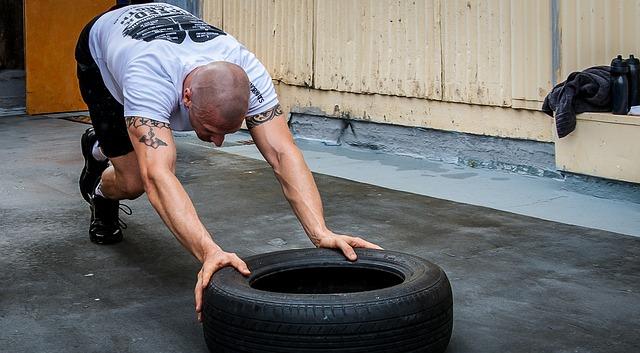In today’s fast-paced world, prioritizing family fitness has become more essential than ever. The right personal trainer can serve as a pivotal guide in navigating the diverse fitness needs of each family member, from young children to grandparents. Selecting the ideal trainer is not merely about credentials or proximity; it involves a nuanced understanding of your family’s unique goals, preferences, and dynamics. This article delves into the critical factors that should influence your decision-making process, empowering you with the insights needed to make an informed choice. By examining key attributes such as expertise, communication style, and adaptability, we aim to equip you with the confidence to select a personal trainer who can foster a holistic and engaging fitness journey for your entire family.
Evaluating Credentials and Experience for Family Fitness
When it comes to selecting the ideal personal trainer for your family, examining their credentials and experience is crucial. A reputable trainer should hold a certification from a recognized organization, such as the National Academy of Sports Medicine (NASM), American Council on Exercise (ACE), or International Sports Sciences Association (ISSA). These certifications ensure that the trainer has undergone rigorous training and adheres to high standards of fitness education. Additionally, it’s beneficial to verify their continuing education, as this reflects their commitment to staying updated with the latest fitness trends and techniques.
Experience plays a pivotal role in tailoring fitness programs that suit the diverse needs of a family. Look for trainers who have a track record of working with a range of age groups and fitness levels. Ask potential trainers about their experience with family-oriented fitness and their ability to create engaging activities that involve everyone. Key attributes to look for include:
- Adaptability: Can they modify exercises to accommodate different fitness levels?
- Creativity: Are they capable of designing fun, family-friendly workouts?
- Communication Skills: Do they explain exercises clearly and motivate effectively?
By evaluating these aspects, you ensure a harmonious and effective fitness journey for your entire family.

Understanding Training Styles and Specializations
When embarking on the journey to find the ideal personal trainer for your family’s fitness needs, it’s crucial to recognize the diverse range of training styles and specializations available. A well-rounded understanding of these can help tailor a program that aligns with your family’s unique fitness goals. Training styles can vary significantly, with some trainers focusing on high-intensity interval training (HIIT) for quick results, while others may specialize in functional training aimed at enhancing everyday movements.
- HIIT: Ideal for families seeking time-efficient workouts that boost cardiovascular health and burn calories.
- Functional Training: Focuses on improving daily life activities, enhancing strength, and mobility.
- Yoga and Pilates: Perfect for those interested in flexibility, balance, and mental well-being.
- Sports-specific Training: Tailored for families with young athletes aiming to improve performance in particular sports.
Specializations are equally important. Whether it’s working with children, seniors, or managing specific health conditions, selecting a trainer with the right expertise ensures a safe and effective fitness journey. A trainer certified in pediatric exercise science, for instance, would be beneficial if you’re focusing on engaging younger family members. Conversely, a trainer with a background in geriatric fitness can provide suitable programs for older adults. Ultimately, the right trainer will not only match the fitness level of each family member but also inspire a lifelong commitment to health.
Assessing Communication Skills and Compatibility
In selecting a personal trainer for family fitness, evaluating their communication skills and compatibility is crucial. A trainer must articulate instructions clearly and adapt their communication style to suit each family member’s unique needs and learning pace. This ensures that everyone feels comfortable and understood, promoting a supportive environment. Compatibility goes beyond just professional demeanor; it encompasses the ability to connect on a personal level, fostering trust and motivation.
- Active Listening: A trainer should attentively listen to concerns and feedback, demonstrating empathy and responsiveness.
- Adaptability: They should tailor their communication approach for children and adults, making fitness engaging for all age groups.
- Encouragement and Motivation: The right trainer will inspire enthusiasm, celebrating achievements while constructively addressing challenges.
By focusing on these aspects, families can find a trainer who not only enhances physical health but also strengthens familial bonds through effective and compatible communication.
Considering Availability and Flexibility for Family Schedules
When selecting a personal trainer for your family’s fitness journey, it’s crucial to weigh their availability and flexibility to ensure they align with your family’s dynamic schedule. A trainer who can accommodate varied time slots can make a significant difference in maintaining consistency and motivation. Here are a few factors to consider:
- Session Timing: Look for trainers who offer a range of session times, including early mornings, evenings, or weekends, to fit around work, school, and other commitments.
- Location Flexibility: Consider trainers who can provide sessions at home, in a gym, or even outdoors, offering variety and convenience for your family’s needs.
- Rescheduling Policies: Understand the trainer’s policies on cancellations and rescheduling. A trainer with a flexible policy can help accommodate unexpected changes in your family’s schedule.
By ensuring your trainer’s availability and flexibility match your family’s schedule, you create a sustainable fitness routine that everyone can commit to, making the journey not only effective but also enjoyable.



